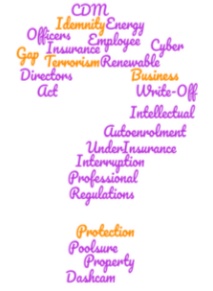
Having grown up in the 1960s, I am fortunate not to have had any first-hand experience of war....
…My Grandads were too young to fight in the First World War, too old for the second and likewise, my dad was only called up as the Second World War finished. There was some talk of the bombing of Chatham docks where my parents grew up and their evacuation, but otherwise what I knew about the wars when growing up was from films and TV documentaries and seeing the odd bombsite that hadn’t been rebuilt.
There was the experience of national support for our forces during the Falklands Conflict (I never understood why that wasn’t a war) and the first Gulf War but less so for the second thanks to Blair and Campbell’s ‘dodgy dossier’. But Ukraine seems different from all the other overseas conflicts not involving our forces. There have been sanctions against various countries over the years but whilst we are understandably not actively involved other than supplying arms, we seem to have gone to war economically against Russia.
Perhaps the ‘Blitz Spirit’ like Ukrainian defiance has struck a chord with the British Public, although there is a certain irony from celebrities and much of the media (excepting the frontline reporters). They virtue signal their support for the heroic Ukrainian resistance from the safety of their homes or studies, bemoaning Russian propaganda, seemingly immune to the hypocrisy of their recent all but surrender to COVID on the strength of government and media communication campaigns.
With the insurance industry, Government sanctions prevent Russian access to our insurance markets and the global brokers are in the process of transferring their Russian businesses to independent local management.
Insurance risks involving Russia or Ukraine are generally arranged within those countries so my experience is limited to clients travelling to the old Soviet region with the odd adventurous one asking for a green card for cover to the Russian border. More commonly clients exporting goods have accepted that transit cover generally ceases when the goods reach the Russian port or airport thanks to insurer concerns about the Russian mafia, unless prior agreement is obtained and on a lighter note, the ‘Black Sea and Baltic’, a Russian venture into the UK insurance market who went bust in the 1990s is common parlance to highlight the difference between sound and ‘less sound’ insurers.
Insurers have already restricted war cover in the region on aviation and marine policies, although even as the war rages cover is still available, at a cost and mainstream travel insurance becomes redundant in view of Foreign Office advice not to travel to Russia or Ukraine, although cover with specialist insurers will still be available.
The question of Ukrainian refugees affecting home policies has been raised in the media and whilst notification to insurers would be recommended should not be an issue as most insurers are unlikely to want bad publicity. AXA have already announced that they do not require prior notification.
Insurers are obviously concerned about potential losses, notably the 500+ western planes stranded in Russia since travel was banned, but also exposure on many types of policies and in particular, the concern about retaliatory Russian cyber-attacks.


Recent Comments